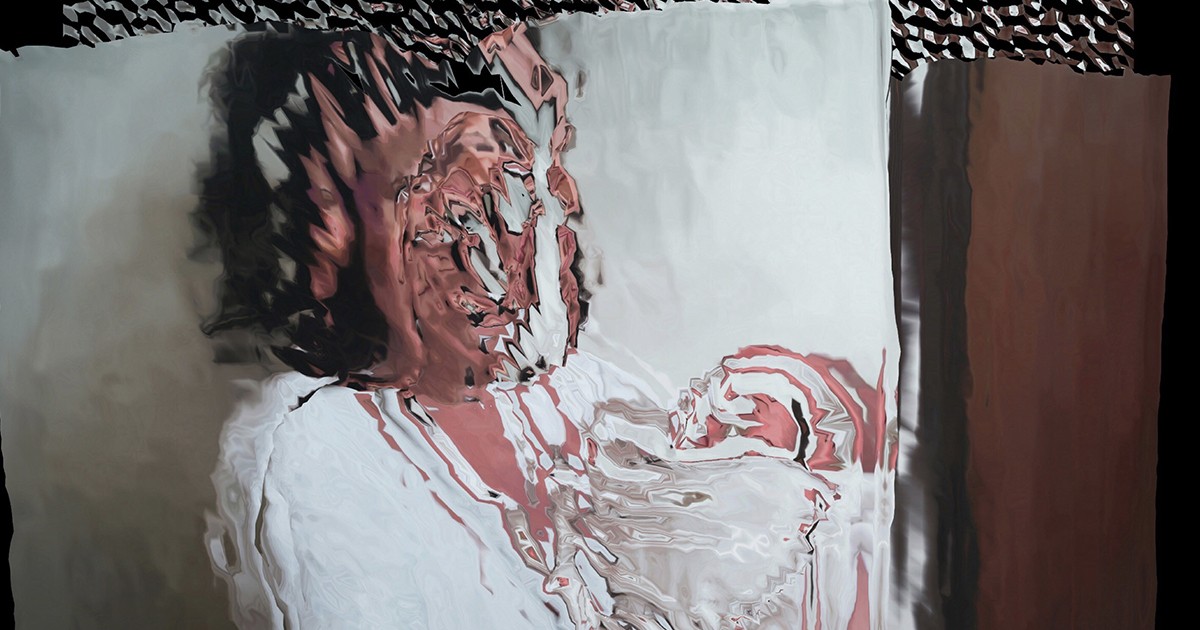
By Becky A. Benson
Look at me, I silently pleaded as I stared at her eyes. Not into her eyes, as she wasn’t looking back at mine, just at her eyes as they wandered around the room beyond my face. Her gaze always on the cusp of, but never truly settling on mine. Always out of reach. I was willing her with all my might to stare back at me, but she never did, and I felt like a failure. Here I was, a mere few weeks after her birth and I was already failing her as a mother. She suckled expertly with a swift and intent latch, but no matter how gently I cradled her tiny body and deftly I supported her newborn head; at precisely the right angles while she nursed, she wouldn’t look longingly into my eyes. The thirst I had for this subtle connection was never quenched.
I was a vessel of nourishment, but nothing more. I provided a service, but even in doing so, in committing such an intimate act as giving my breast, there was no intimate connection beyond the conveyance of food. I felt like I had been kicked to the ground, the wind knocked out of me. I wasn’t bonding with my her, my precious baby girl. So longed for, so loved. My beautiful Miss Elliott.
I simultaneously hated myself and thought I was spiraling into a darkened state of irrational craze. What mother feels such a lack of connection? Did I have postpartum depression? Was I making it all up in my head? Why did it feel so much different this time around than it did with her sister, Skylar four years earlier? I should be an expert at this point. Why had it felt so easy and natural then, and why did I have to struggle so much now? Had the first time been a fluke? Was there something so superhumanly intuitive about Skylar that she, all on her own was able to make up for whatever inadequacies I was now displaying? Had I been displaying them all along?
Does she not love me, I questioned in moments of utter despair? What’s wrong with my baby, I asked myself deep down in the innermost reaches of my heart, afraid to voice such concern aloud, even to my own mind.
I sat in the confines of my mind-made silent hell, in the rocker, on the floor of the nursery, or on the sofa with a pillow time and again desperately searching for proof of our connection with each feeding. Looking for proof that there wasn’t something fundamentally wrong with me as a mother. This experience, so beautiful, so innate in mothers and children, so connective, and something in my brain wouldn’t cooperate in to allow it to be exactly what it was mean to be. The functioning was there, but it was rote, robotic. There was no passion or desire for me beyond her want for the food I alone could produce.
“Look at me, baby,” I actually voiced out loud to her, much to my own exasperated surprise one particularly trying day. “Why won’t you look at me?” I sobbed. I shrank to a pile of nothing. This role I had worked so hard to achieve, this title of Mother was a crown tilting further and further, close to slipping off my head completely. It was gilded. I hadn’t deserved it, after all. As it fell to the earth, I heard the pinging of the cheap metal as it clinked against the ground. A torn sash. A lost slipper.
Every day I willed myself to try again. To find a way to force a connection in some distant corner of our relationship. An anchor to hold us together. I tried over and over to appease the worries of my own swirling mind. We were still months away from discovering the terminal degenerative genetic neurological condition that was already well underway in attacking her small body and mind.
Thanks to the two recessive faulty copies both my husband and I unknowingly passed along to her Tay-Sachs disease was already robbing her of even the simplest of abilities such as focusing her vision steadily on objects right in front of her face. Eventually it would steal her eyesight completely. It would also siphon away her mental cognition, along with her ability to vocalize, and even freely move her limbs. She would develop seizures, trouble swallowing, and require highly specialized twenty-four-hour care.
I didn’t know any of this in that moment. It would be months before I would learn the true horror of our reality. Months before I would beg to be able to turn the clock back and will there to be something wrong with me instead of her. To will myself to believe I was a failure again. I would beg to take all the strife, and guilt, and loneliness I had felt, and heave them upon myself again if only I could save her from this fate.
And we were just three short years away from losing our sweet Miss Elliott forever.